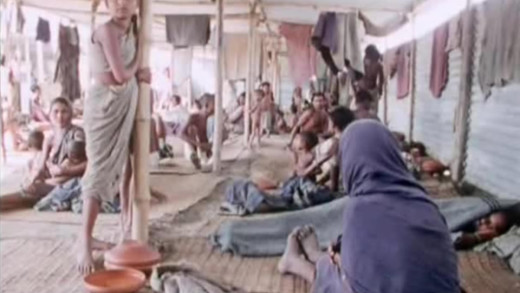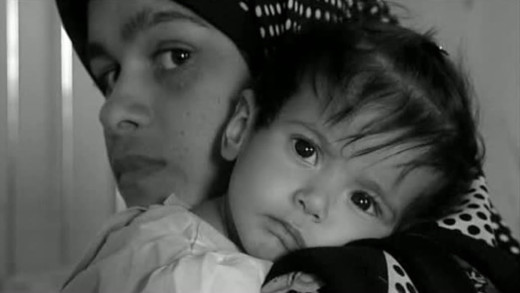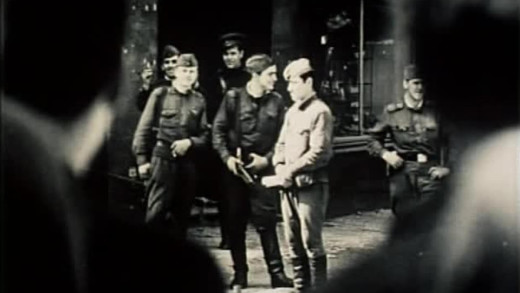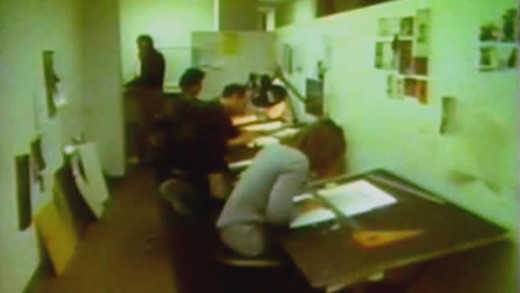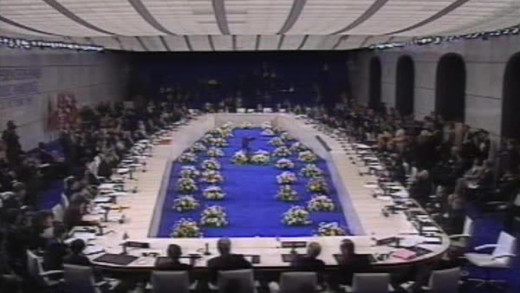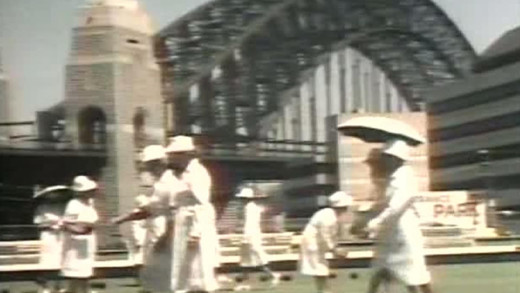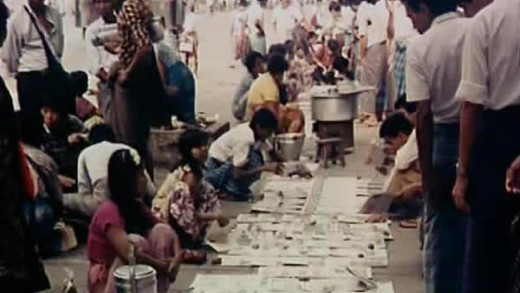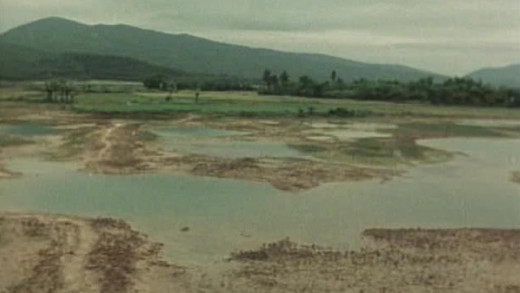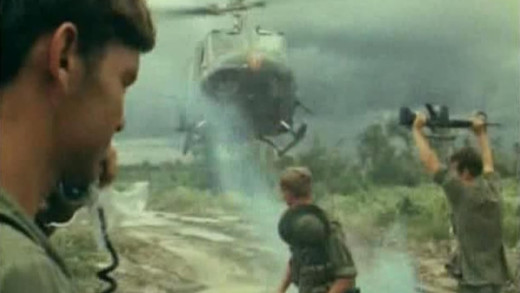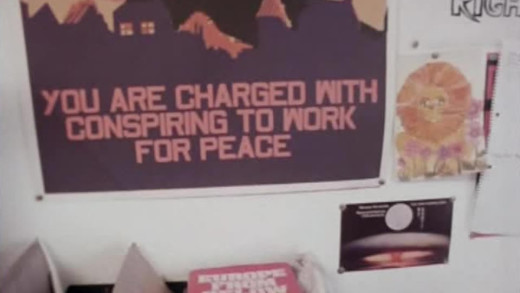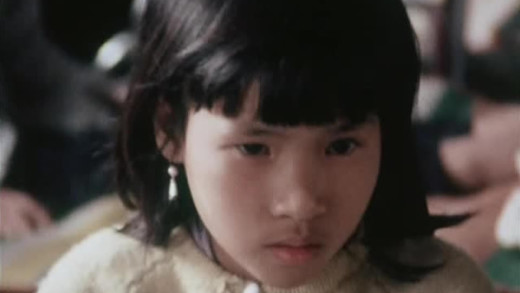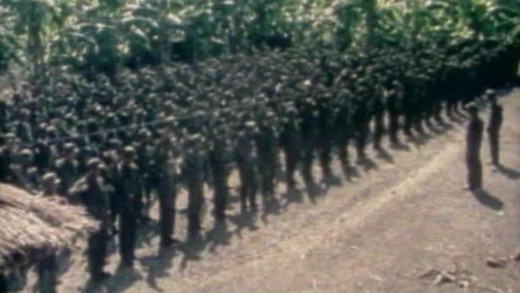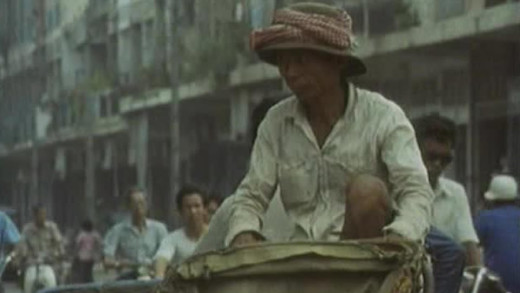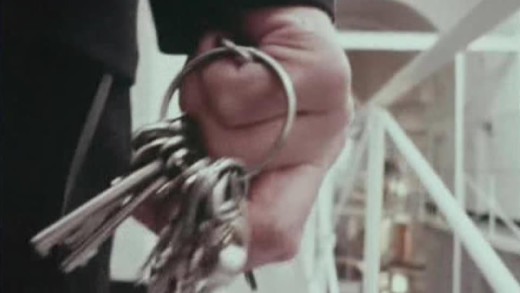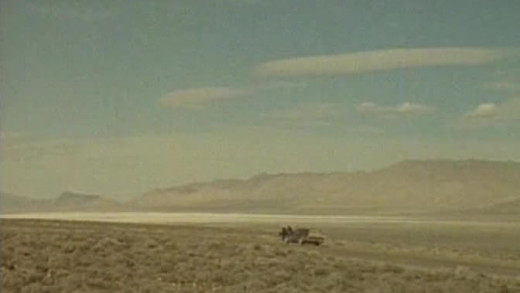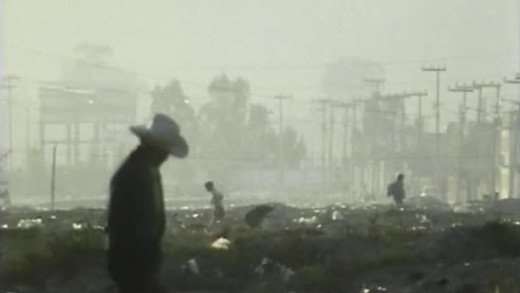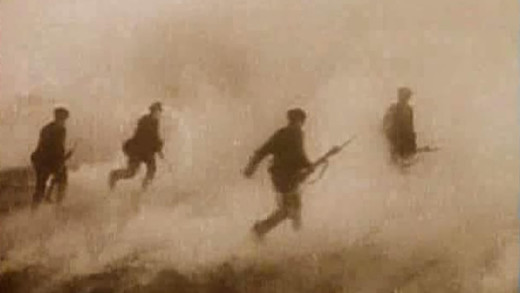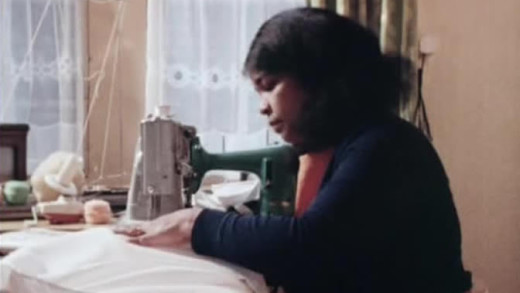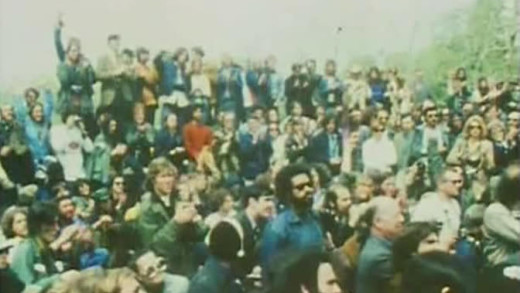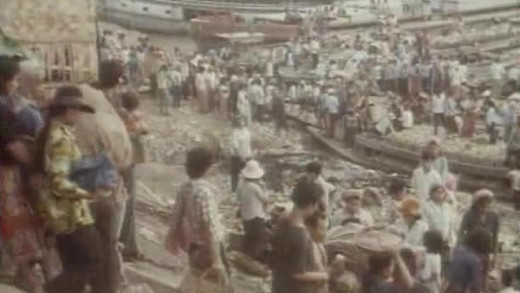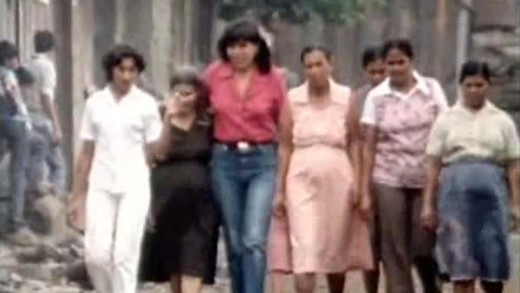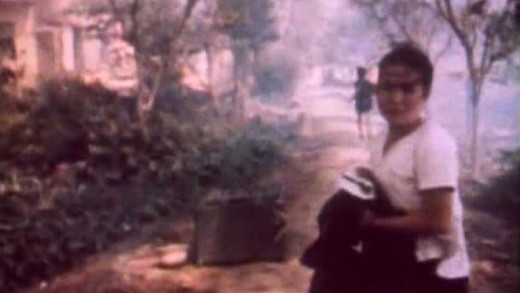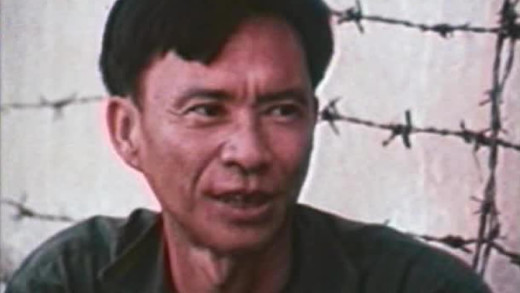John Pilger travels to Bangladesh to report on the horrors of the famine in the country, its causes and tragedies, circa 1975. With people passing away on the street on a daily basis from starvation and US foreign policy continually ignored, An Unfashionable Tragedy documents the plight that continues to this day, showing that food is a powerful weapon, more powerful than oil...
After Iraq invaded Kuwait in 1990, the United Nations (backed strongly by the US and UK) imposed harsh sanctions on Iraq that lasted for 10 years (1991-2001); the harsh restrictions on imports of everything, including access to key medicines, resulted in over a million deaths, more than half a million of which were women and children. That's more deaths than the two atomic bombs dropped on Japan and the events of September 11 combined. The purpose was regime change, but it never came. The overwhelming majority of those killed were the poor, elderly, women and children. Empirically, sanctions overwhelmingly punish the poor, the destitute. While the sanctions were in place, the richest people in control of the resources (Saddam Hussein et al.) still had everything they wanted: food, cars, mansions, free access to medicines, etc...
A Faraway Country is an examination of the Czech underground movement known as the Charter 77--an informal civic initiative in communist Czechoslovakia from 1976 to 1992, part of the Communist Soviet bloc. The film shows interviews with members of Charter 77, and others, describing first-hand the totalitarian communist regime, and their response to it.
Street of Joy
Street Of Joy looks at how product marketing methods and advertising techniques are applied to politics by specifically following the campaigns around the election of Jimmy Carter in the United States during 1976. In these times, the techniques of today are seen in their early years, especially the use of carefully crafted images for use on television...
John Pilger travels to Cambodia to investigate how the United Nations has allowed the Khmer Rouge regime to grow stronger. Why has Pol Pot's organisation grown stronger and more menacing since the arrival of the UN? Cambodia -- Return To Year Zero looks behind the façade of the so-called 'peace process' and asks: Has the unthinkable for Cambodia at last been made acceptable for the rest of the world?
In Australia
In Australia takes a candid look at the highs and lows of Australian society, circa 1976. The film ties together the workings of media manipulation in its early days, along with the removal of Prime Minister Gough Whitlam by Governor-General coup d'état—Kerr's Cur—to demonstrate the common apathetic side of popular culture in the 'lucky country.' The film also touches on the subtlety of remnant class structures remaining from English heritage by revealing the workings of the 'Occa'—a prudish stereotype of the common person portrayed and exploited by mainstream media, revealing views on immigration and racism in a country, ironically, colonised by immigrants.
Inside Burma -- The Land Of Fear exposes the history and brutality of one of the world's most repressive regimes. Nearly the size of Texas, with a population of more than 40 million, Burma has rich natural resources. Yet Burma is also a secret country. Isolated for the past 40 years, since a brutal military dictatorship seized power in Rangoon, Burma has been relegated to one of the world's poorest countries, with the assault on its people all but forgotten by the rest of the world. Award winning film-makers John Pilger and David Munro go undercover to expose how the former British colony is ruled by a harsh, bloody and uncompromising military regime...
In 1978, three years after the end of the Vietnam War, film-maker John Pilger travels back to Vietnam to find out what had happened under the new regime. Do You Remember Vietnam? recounts numerous personal stories: talks with a young tour guide at a war crimes museum who had been imprisoned in the infamous US tiger cages; a former North Vietnamese soldier into the underground base where he spent 20 years crawling through tunnels undetected; and views from the streets in Hanoi, where the largest single aerial bombardment in history took place.
Using interviews and frontline footage, Vietnam -- The Quiet Mutiny reveals the internal sense of disillusionment and frustration born from the rift between bureaucracy and soldiers, that triggers the withdrawal of the United States military from Vietnam. As the US employs psychological warfare against the Vietnamese, reporter John Pilger finds himself unable to obtain meaningful information from the military—a press conference he attends is nicknamed "the 5 o'clock follies" for the evasive nature of the proceedings. And so it is with the grunts, the "wheels of the green machine," that Pilger finds a very human side to the US presence in Vietnam: soldiers who were once ready to serve their country, now doubtful of their purpose there. Plied with visits from Miss America and ignored by Vice President Spiro Agnew, they experience the war in a way many of their superiors do not.
A Nod And A Wink reviews the use of vague Conspiracy laws in Britain from 1975, laws which are much in the same as those used in police states such as Brazil and the Soviet Union to suppress political and moral dissent. This film raises and addresses the serious questions about the way the legal system works in Britain--and indeed elsewhere...
After the 1973 Paris Agreement and military ceasefire, more than 70,000 soldiers and civilians had been killed in Vietnam. Vietnam -- Still America's War investigates how the Vietnamese populace still have to contend with mines and other legacies of the war, even after the ceasefire, and after the war...
John Pilger once again travels to Cambodia to report on the brutality and murderous political ambitions of the Pol Pot and Khmer Rouge totalitarian regime which brought genocide and despair to the people of Cambodia; while neighbouring countries, including Australia and the United Nations shamefully ignored the immense human suffering and unspeakable crimes that bloodied the country...
Cambodia -- The Betrayal is the fourth follow-up to John Pilger and David Munro's series on Cambodia, the film Year Ten from 1989, which examined the hypocrisy of western geopolitics by looking at the way in which the United Nations pressured Cambodia to accept the Khmer Rouge regime as part of the United Nations peace plan.
Guilty Until Proven Innocent reports on the issue of innocent people confined to prisons on remand in the UK, circa 1974. People are imprisoned without trial and are later released with either a small fine, a set of mandatory conditions, or leave completely innocent. It's a strange set of circumstances in a country with such pretensions of a bill of rights and espoused 'legal protections.' Is bail a right or a privilege?
John Pilger travels to Reno, Navada in the United States, to investigate the threats facing Pyramid Lake--a reservation of the Paiute people. With water diversion beginning in 1905 by Derby Dam and the lake's very existence threatened, the Paiute sue the conservation department of government--the DOI--to curtail further damage. By the mid 1970s, the lake had lost 80 feet of depth, with extensive impacts to fish and other life of the lake. Further water diversion in the 1970s was driven by a racially-exclusive sportsman's and leisure reserve used for white hunting and recreation near the town of Fallon...
To Know Us Is To Love Us covers the public reaction to a Vietnamese refugee camp constructed outside Fort Smith in Arkansas, 1975—not long after the end of the Vietnam war. The film documents the stories of the refugees coming to the United States, along with the reactions of American troops, the public and citizens who take in Vietnamese refugees to assimilate them into American life.
The Mexicans
The Mexicans reports on the history of political repression and corruption in Mexico, a country dominated to this day by its close neighbour—the United States.
The Search For Truth In Wartime investigates the changing face of war reporting and the role of the media during wartime, in context with the Crimea through the two World Wars, to Vietnam and the Falklands. "What is the role of the media in wartime? Is it simply to record, or is it to explain? And from whose point of view--the military, the politicians or the victims?"
One British Family portrays the racial minefield of British society through the eyes of a black family. The film is set in Newcastle during 1974, revealing the multifaceted aspects of internalised racism that still exists today...
Heroes
Heroes reports on the treatment of returning combat soldiers from Vietnam in the early 1980s. The film investigates the strange cultural absence of reverence or memory to soldiers returning home, and shows with first-hand accounts and interviews with returning soldiers, opines from the front line about America's unpopular war.
Cambodia -- Year Ten Update examines the reactions of the British government and the United Nations to the international outcry over the situation in Cambodia.
In 1979, the people of Nicaragua successfully put an end to decades of the corrupt Somoza dictatorship whose family had been in power for more than 40 years, put there by the United States marines. Four years later, this film travels to Nicaragua to question: How can a country survive when its jungle borders hold 4000 hostile troops?
In 1975, John Pilger reported the end of the Vietnam War from the American Embassy in Saigon, where the last American troops fled from the roof-top helicopter pad. Twenty years later, he returns to Vietnam to revive the Vietnamese past and present from the plethora of fake Hollywood images which pity the invader, and overshadow one of the most epic struggles of the 20th century.
Cambodia -- Year One investigates the effect of aid to Cambodia and the extent of the country's so-called new found stability as in 1980. The film portrays Cambodia on a brink of famine and cultural annihilation, but in the process of recovery, also showing the continued support for the Khmer Rouge regime by China and the United Nations.
